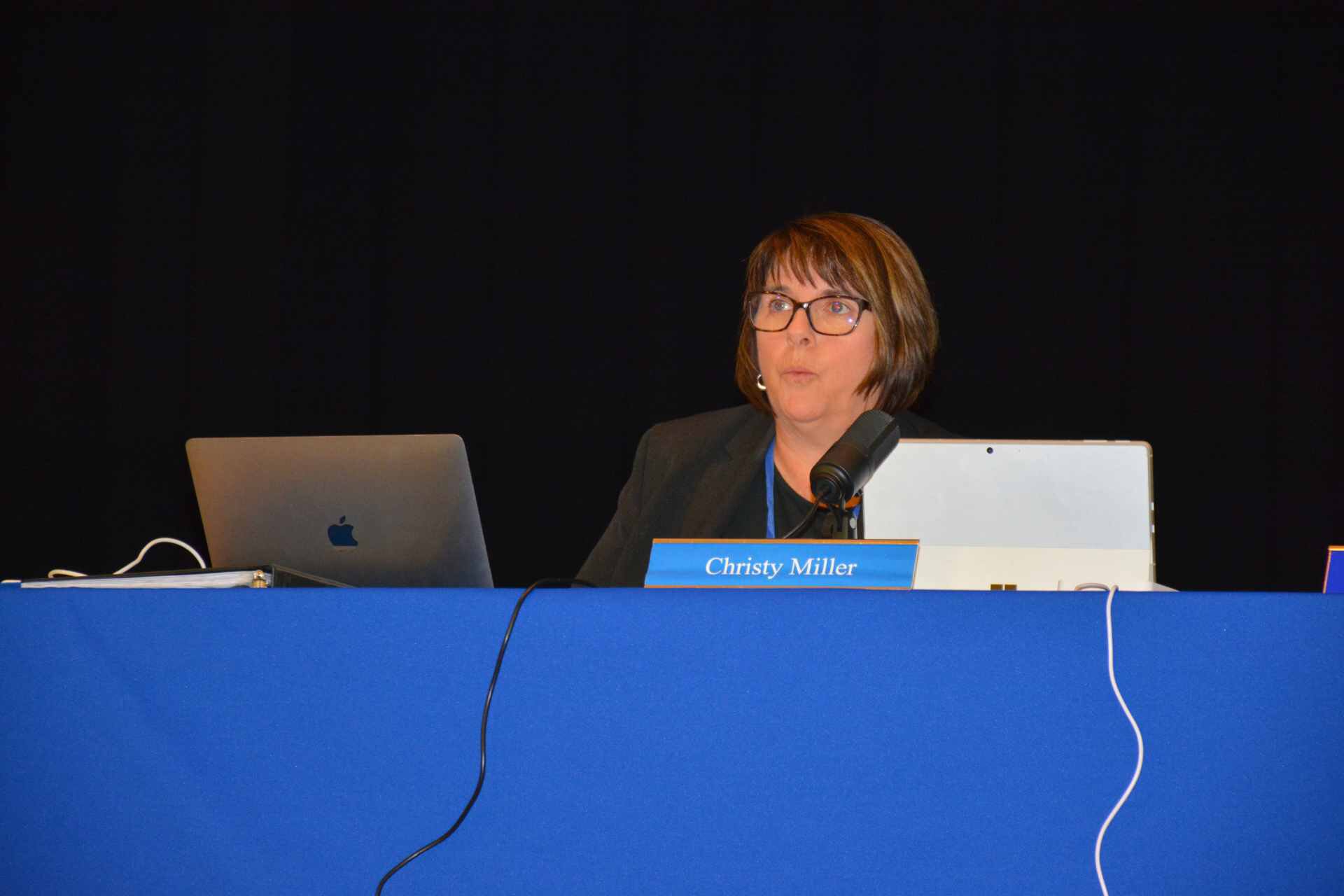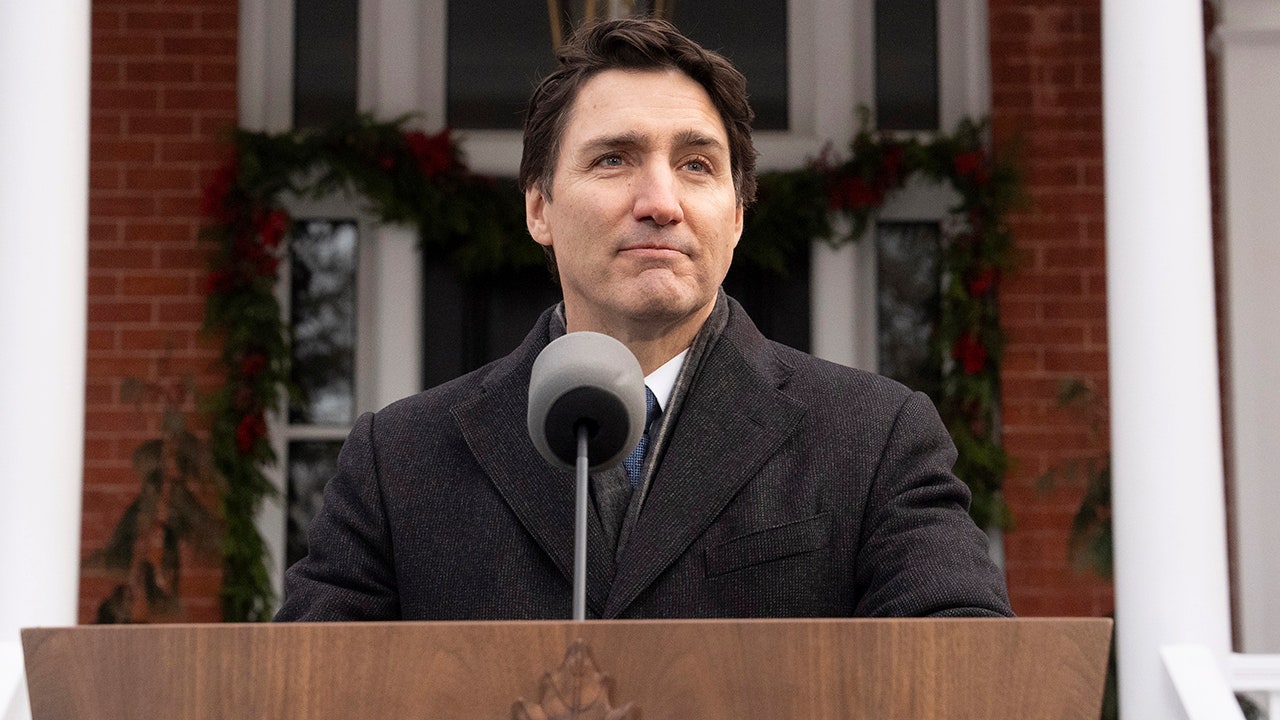West Virginia
Upshur Schools officials say the levy will appear on the May 2024 Primary Election ballot

TENNERTON – It’s official: Upshur County Schools plans to re-run the levy in the May 2024 Primary Election.
Superintendent Christy Miller made the announcement at the Upshur County Board of Education’s Oct. 10 meeting. (The board meets only once a month now because the West Virginia Department of Education and state Board of Education must pre-approve all items on the agenda.)
Near the end of that meeting, Miller said she had been fielding questions about the matter.
“The only other thing I would share – because folks are starting to ask questions – is that we will be running a levy, and it will be coming up in May,” she said. “I’ve been working with the state department of education on that.”
“I’ve been looking at past levies and what’s been included in those,” Miller added. “I’m also looking at how funds were distributed through past levy calls, and we’re starting to reach out to different folks within the county who can lend a hand and provide some additional information that we need.”
Miller will then consult the West Virginia Department of Education and the legal firm, Bowles Rice, for assistance.
“The department will help us formulate what that would look like, and we would then go to Bowles Rice, who represents us, and they would help put that together in legal terms and also help us put the ballot together, and then it would go out [for viewing] to citizens of the county.”
Miller said she’s already been invited to talk about the levy at several PTO organizations in the spring, and once the levy language is finalized, “we’re going to get together some other folks who would be willing to host some [informational] sessions, whether those be in their homes or businesses.”

“For those who are interested in learning more about the levy, we will make ourselves available to them so we can get the message out about the levy, what it’s going to be covering as far as costs and how they go back to improving outcomes for our students, which, in turn, improves the community as a whole,” she said.
The levy question would appear on the Primary Election Ballot on May 14, 2024, designated as Election Day in the Mountain State, according to the W.Va. Secretary of State’s Office election calendar.
Miller’s announcement comes on the heels of two failed education-related measures in Upshur County. Most recently, county residents voted against a renewal of the five-year excess levy – which previously passed in a January 2019 special election – by a margin of just 166 votes in the General Election in November 2022, according to a previous article.
That November 2022 General Election marked the first time in more than 22 years that Upshur County Schools’ proposed continuation of the excess levy had failed — 3,164 to 2,998 votes. However, the current five-year levy that residents voted in favor of in January 2019 remains in effect through June 30, 2024.
Just 10 months prior, in January 2022, Upshur County Schools ran a special bond call proposal that, if passed, would have funded the construction of a new comprehensive career-and-technical high school and a remodeling of Buckhannon-Upshur High School to mold it into a middle school.
However, voters decisively rejected the measure. With 20 of 21 voting precincts reporting – there were technical issues at the Selbyville Fire Department precinct – 3,390 registered voters voted against the bond call, while only 764 voted for the proposal.
Had it passed, renovations to the current high school were expected to cost about $8 million while the largest portion – roughly $62 million – would have supplied funding to construct the proposed CTE high school.
Prior to that, in a special January 2019 excess levy election, Upshur County voters approved the continuation of the 2014 levy by one of the largest margins in recent history. The results showed 66.78 percent of the voters were in favor of the levy, while 33.22 percent of the voters were against the passage of the levy.
That margin of approval definitively surpassed previous school levy elections; the measure squeaked by in 2009 and was approved by a 13-point margin in 2014, according to previous reporting.

West Virginia
Which Five Transfers Will Make the Biggest Impact at West Virginia?

West Virginia head coach Rich Rodriguez is far from being done in the transfer portal, but with nearly two dozen pickups thus far, I figured we could start taking a closer look at the stars of the group.
We will revisit this before spring practice and then prior to the start of fall camp, as more players will be added, so we’ll adjust the list. For now, here are the five transfers who I believe will make the biggest impact.
Jahiem White is clearly RB1, but in this day and age, you need two or three capable running backs, especially in a Rich Rodriguez offense. Edwards brings a different dynamic to the table with his 6-foot-4, 240-pound frame. He can hammer it in between the tackles to give WVU a nice lightning-and-thunder combo, similar to what they had with White and CJ Donaldson. He rushed for over 1,000 yards and six scores this season.
Perry brings a level of physicality that has been pretty much non-existent in the Mountaineer secondary over the last handful of years. He does have some versatility to him as well, being able to play deep safety, up in the box, and even in the slot if needed. Assuming he makes the transition to the Power Four level smoothly, he’ll have a chance to play on Sundays.
West Virginia’s wide receiver room underwent a near-complete makeover, but with the addition of Cam Vaughn, they have a dynamic playmaker they can build with for the next three seasons. In his redshirt freshman season at Jax State, Vaughn caught 48 passes for 803 yards and five touchdowns. Not too shabby for someone who just made the switch from quarterback a year ago.
After losing Josiah Trotter (Missouri) and Trey Lathan (Kansas) to the transfer portal, the Mountaineers desperately needed to add a veteran linebacker who could come right in and make a difference. Over his last two seasons at Colorado State, Wilson tallied 205 tackles, 11.5 tackles for loss, seven passes defended, 3.5 sacks, and two picks. A tough, hard-nosed kid who fits this defense like a glove.
West Virginia beat out Ole Miss to land one of the best cover corners in the transfer portal in Michael Coats Jr. This past season with the Wolfpack, he notched 41 tackles, 14 passes defended, and four interceptions, finishing in the top five nationally in the last two categories. Barring some crazy get in the portal, I expect Coats to be the top acquisition out of the portal this offseason for the Mountaineers.
QB Jaylen Henderson (Texas A&M), RB Tye Edwards (Northern Iowa), RB LJ Turner (Catawba College), WR Cyrus Traugh (Youngstown State), WR Cam Vaughn (Jacksonville State), WR Daveon Walker (Butler C.C.), WR Jarod Bowie (Jacksonville State), WR Oran Singleton Jr. (Eastern Michigan), TE Jacob Barrick (Jacksonville State), TE Johnny Pascuzzi (Iowa), OL Walter Young Bear (Tulsa), OL Robby Martin (NC State), OL Wyatt Minor (Youngstown State), OL Kimo Makane’ole (LSU), DE Braden Siders (Wyoming), LB Chase Wilson (Colorado State), LB Ashton Woods (North Carolina), CB Derek Carter (Jacksonville State), CB Jordan Scruggs (South Alabama), CB Devonte Golden-Nelson (Akron), CB Michael Coats Jr. (Nevada), S Justin Harrington (Washington), S Will Davis (Virginia Union), S Fred Perry (Jacksonville State), S Jordan Walker (Chattanooga), and K Ethan Head (Tulane).
MORE STORIES FROM WEST VIRGINIA ON SI
WVU QB Transfer Ryder Burton Chooses Transfer Destination
MAILBAG: Strength of Transfer Class, Portal Strategy, GM Dynamic, Future Departures + More
Mountaineer Postgame Show: WVU 78, Colorado 70
Initial Thoughts on West Virginia’s Win Over Colorado
West Virginia
West Virginia holds off Colorado 78-70 for important road victory – WV MetroNews

No. 21 West Virginia continues to rightfully battle fatigue throughout the second half of games as it regularly plays with what is in essence a seven-man rotation.
That was again the case Sunday at Colorado.
Fortunately for the Mountaineers, reserve guard Joseph Yesufu played a major part in ensuring the visitors didn’t squander a 14-point second-half lead.
Yesufu scored 13 of his 18 points after halftime, including eight over the final 4:44 to help West Virginia overcome the Buffaloes’ second-half comeback attempt in a 78-70 victory at CU Events Center.
“Joe Yesufu really gave us a good spark when we needed it the most,” first-year WVU head coach Darian DeVries said. “Our offense had gotten a little stagnant and we were settling for jumpers off of some of their switching and things. Joe was able to give us that spark we needed.”
By claiming a win in the first meeting between the two teams, WVU improved to 12-3 overall, 3-1 in Big 12 play and won a second conference road game this season to match the program’s Big 12 road win total of the previous three seasons combined. Colorado (9-6, 0-4) remains one of two winless teams in league play.
The Mountaineers never trailed outside of the game’s opening basket, and they put together a strong opening half to lead 40-29 through 20 minutes — West Virginia’s third double-figure halftime advantage in four Big 12 contests.
Center Eduardo Andre made all four of his field-goal attempts and scored 10 points in the opening half, while freshman wing Jonathan Powell added 10 on 4-of-7 shooting with a pair of three-pointers. Add in nine points from point guard Javon Small, and the Mountaineers’ top scoring trio combined to equal Colorado’s point total at halftime.
WVU went to halftime with five turnovers to Colorado’s 11, and the Mountaineers had all 12 points off turnovers in the game to that point.
“Creating some of those turnovers was huge for us to get a little separation in the first half,” DeVries said.
When Small hit three threes over a stretch of 1:15 early into the second half, it gave the visitors their largest lead of the contest at 49-35.
Yesufu added a triple moments later for a 52-39 advantage, but CU increased its aggressiveness offensively and was to within seven at 54-47 when Dangot Bak made two free throws with 13:22 remaining.
That was a theme throughout the second half as the Buffaloes made 24-of-28 foul shots after not producing a point from the free-throw line on two attempts in the first half.
Bak’s two free throws came early into a stretch of 12 straight Colorado points scored from the charity stripe. It ended with Trevor Baskin making the second of two attempts with 8:20 to play, at which point the Mountaineer lead was 57-55.
“Defensively, we put ourselves in some tough positions with some reaching fouls and not staying disciplined and allowed Colorado to get to the line and deservedly so,” DeVries said. “We have to learn how to still be able to be physical, but also be discipline in the way we’re doing that. That game shifted pretty quickly in the second half and Colorado did a nice job with some adjustments.”
Andre and Sencire Harris accounted for dunks on consecutive WVU possessions, and Harris scored from close range again with 5:41 left for a 63-59 advantage.
After Baskin scored on a second-chance opportunity with 2:28 left to bring the Buffaloes to within 66-63, Yesufu scored on a drive to the basket.
With WVU’s lead again back to three on its next possession, Yesufu produced the game’s most important basket, scoring with his left hand on a drive that amounted to a conventional three-point play and a 71-65 advantage with 1:23 remaining.
That was the end of eight straight WVU points produced by Yesufu, who entered averaging 4.1 and had scored more than seven once over his first appearances in a Mountaineer uniform.
“They were doing a nice job on Javon in the second half, so we wanted to put the ball in Joe’s hands a little bit more,” DeVries said. “He has great speed and at that point in the game, that’s what we needed was somebody that could get downhill and be able to get to the rim a little bit more.”
Small made 3-of-4 free throws to help the visitors up their lead to nine, and the Buffaloes never got the deficit inside of six over the final minute.
Yesufu made 6-of-9 shots in his season-high scoring output.
Small led all players with 26 points and seven assists.
Andre added 12 points and shot 5 for 5 before fouling out, while Powell finished with 10 after a scoreless second half.
WVU was without Tucker DeVries for a seventh straight game and freshman KJ Tenner for a second straight contest.
“We’re a little shorthanded, so we do get fatigued sometimes in the second half,” DeVries said. “[Colorado head coach Tad Boyle] did a really good job. He played a lot of guys and they had fresh bodies that kept coming at us. We just don’t have the amount of bodies we need to sub and we got in a little foul trouble on top of it. We got worn out a little bit, but we had just enough. Joe, being a little more fresh than the other guys, was able to kind of will us to the last finish line.”
Julian Hammond III led Colorado with 23 points and was 8 for 8 on free throws.
Assane Diop added 13 points and was 6 for 6 from the free-throw line.
Colorado out-rebounded the Mountaineers 35-30, but scored only two points off seven WVU turnovers. The Mountaineers also had a 32-26 edge in paint points.
The Buffaloes made only 8-of-23 field-goal attempts after halftime and finished 20 of 48 for the game.
“It was critical that we didn’t let them get a lot of space,” DeVries said. “They have multiple guys that when they get some room have the ability to get it off and they shoot it at a high percentage. We wanted to try to get into some of those ball screens and actions as much as we could to try to make it difficult. The counter to it is that’s where a lot of our fouls started coming. We have to figure out a way to be able to do both.”
West Virginia
No. 21 West Virginia vs. Colorado Computer Predictions

No. 21 West Virginia and Colorado face off in Boulder on Sunday at 3:0 p.m. EST. The Mountaineers are 2-1 in Big 12 play, while the Buffaloes are 0-3 in league play.
Computer models such as BartTorvik, BPI, and KenPom predict the matchup between both teams.
BPI — ESPN BPI gives West Virginia a 59.3 percent chance to win on Sunday. The Mountaineers are expected to win by 2.4 points. The Mountaineers are No. 44 in the BPI rankings while Colorado is No. 86.
BartTorvik — BartTorvik gives the Mountaineers a 65 percent chance to win the game. The projected final score is 67-63 in favor of West Virginia. WVU is No. 25 in the T-Rankings, and Colorado is No. 84.
KenPom — KenPom gives West Virginia a slight edge at a 51 percent chance to win the game. The projected final score is 67-66 in favor of the Mountaineers. WVU is ranked No. 47 by KenPom, while Colorado is ranked No. 81.
Tip-off is set for 3:00 p.m. on Sunday and the game will be televised on ESPN+.
-

 Politics1 week ago
Politics1 week agoWho Are the Recipients of the Presidential Medal of Freedom?
-

 Health1 week ago
Health1 week agoOzempic ‘microdosing’ is the new weight-loss trend: Should you try it?
-
/cdn.vox-cdn.com/uploads/chorus_asset/file/25822586/STK169_ZUCKERBERG_MAGA_STKS491_CVIRGINIA_A.jpg)
/cdn.vox-cdn.com/uploads/chorus_asset/file/25822586/STK169_ZUCKERBERG_MAGA_STKS491_CVIRGINIA_A.jpg) Technology4 days ago
Technology4 days agoMeta is highlighting a splintering global approach to online speech
-

 Science2 days ago
Science2 days agoMetro will offer free rides in L.A. through Sunday due to fires
-

 News1 week ago
News1 week agoSeeking to heal the country, Jimmy Carter pardoned men who evaded the Vietnam War draft
-

 Movie Reviews7 days ago
Movie Reviews7 days ago‘How to Make Millions Before Grandma Dies’ Review: Thai Oscar Entry Is a Disarmingly Sentimental Tear-Jerker
-
/cdn.vox-cdn.com/uploads/chorus_asset/file/25821992/videoframe_720397.png)
/cdn.vox-cdn.com/uploads/chorus_asset/file/25821992/videoframe_720397.png) Technology6 days ago
Technology6 days agoLas Vegas police release ChatGPT logs from the suspect in the Cybertruck explosion
-

 News1 week ago
News1 week agoTrump Has Reeled in More Than $200 Million Since Election Day

















